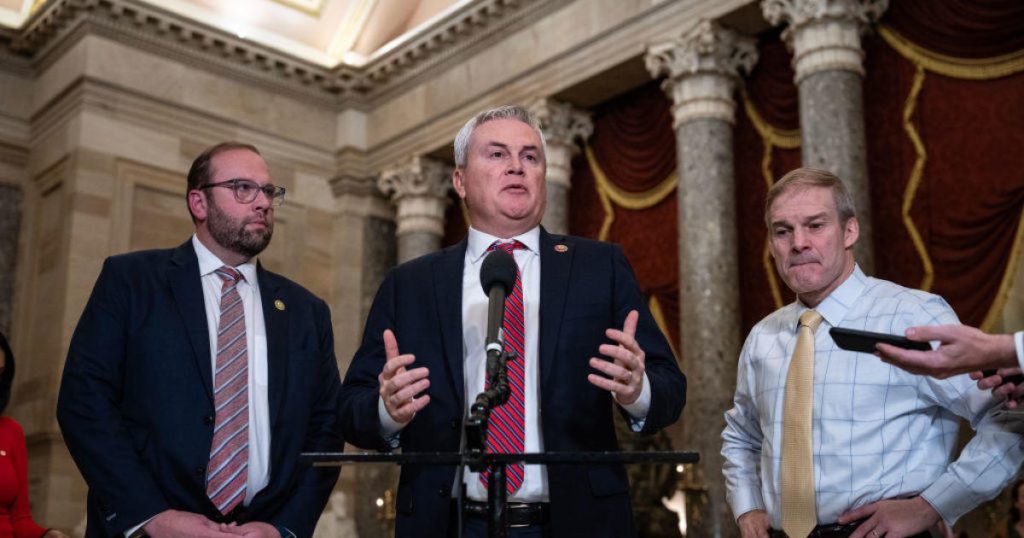The Republican-led House Oversight Committee has invited President Biden to testify publicly as part of their impeachment inquiry, which has been ongoing for months but has stalled after testimony from the president’s son, Hunter Biden, failed to deliver any incriminating evidence. In a letter to the president, Rep. James Comer of Kentucky asked Mr. Biden to explain his involvement with his family’s sources of income under oath. While it is rare for sitting presidents to testify before congressional committees, it has happened three times in American history, with the most recent instance occurring in 1974 with President Gerald Ford.
The focus of Republicans’ impeachment inquiry revolves around allegations that President Biden profited from his family members’ foreign business dealings while he was vice president. Despite their efforts, no evidence of impeachable offenses has been found. The inquiry faced a setback when the special counsel appointed by President Trump charged a one-time FBI informant for allegedly lying about President Biden and Hunter Biden accepting bribes from a Ukrainian energy company. These claims were crucial to Republicans’ argument that the president acted improperly to benefit from his family’s foreign business dealings.
Hunter Biden, in a closed-door deposition, stated that his father was not involved in his business deals. He was then invited to publicly testify in a March hearing regarding the family’s alleged influence peddling, but declined. The president’s lawyer, Abbe Lowell, criticized the hearing as a “planned-for-media event” and an attempt to salvage the impeachment inquiry after it had already ended. Despite the lack of concrete evidence against President Biden, Republicans are pressing forward with their efforts to question him publicly in an attempt to substantiate their claims.
President Biden is expected to decline the invitation to testify before the House Oversight Committee on April 16. A White House spokesperson dismissed the request as a “sad stunt at the end of a dead impeachment.” The president’s refusal to testify would further hinder the progress of the impeachment inquiry, which has struggled to find substantial evidence against him. The standoff between the Republican-led committee and the Biden administration underscores the political divide and the challenges of conducting a fair and thorough investigation into alleged wrongdoing by a sitting president.
The implications of the impeachment inquiry on President Biden’s presidency remain to be seen, as the lack of significant evidence may ultimately lead to its dismissal. The ongoing political drama highlights the contentious atmosphere in Washington and the ongoing efforts by Republicans to undermine the legitimacy of the president’s administration. As the investigation continues, the public and political analysts will closely monitor the developments and the potential impact on the Biden administration’s ability to govern effectively. The outcome of the impeachment inquiry could influence the trajectory of President Biden’s presidency and shape public perception of his leadership moving forward.















